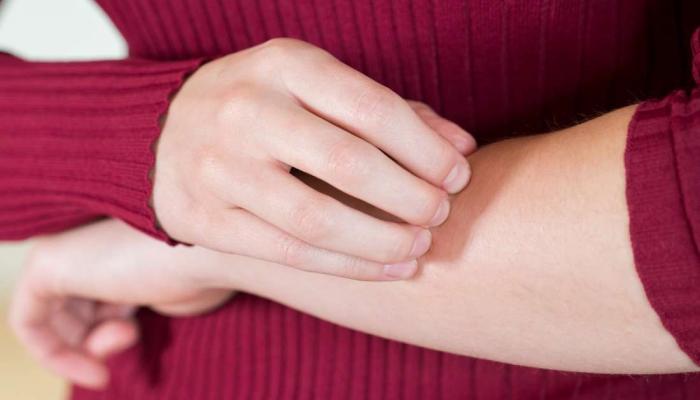Itchy skin is one of the most common and frustrating symptoms people experience. It can range from mild irritation to intense discomfort that affects daily life. While sometimes harmless and temporary, persistent itchy skin may indicate an underlying health issue that needs attention.
Let’s dive into the most common causes of itchy and red skin you should be aware of.
Causes of Itchy and Red Skin
1. Skin Dryness (Xerosis)
One of the leading causes of itchy skin is dryness. When your skin lacks moisture, it can become rough, flaky, and irritated. Several factors can cause skin dehydration, including
-
Exposure to cold, dry weather
-
Aging, which naturally reduces skin hydration
-
Inadequate use of moisturizers
-
Not drinking enough water
Tip: Regularly moisturizing your skin and staying hydrated can greatly reduce dryness-related itching.
2. Allergies
Allergies are another major trigger for skin redness and itchiness. Common allergic reactions include
-
Food allergies: Nuts, soy, wheat, and cow’s milk are frequent culprits.
-
Contact allergies: Reactions to cleaning products, soaps, fragrances, or certain fabrics.
When exposed to allergens, the body releases histamines, leading to redness, swelling, and intense itching.
Read more :
3. Skin Diseases
Certain skin conditions are known for causing both redness and itchiness. These include:
-
Psoriasis
-
Eczema (Atopic Dermatitis)
-
Athlete’s Foot (Tinea Pedis)
-
Measles
-
Chickenpox
-
Scabies
-
Contact Dermatitis
Each condition requires different treatments, so it’s essential to get a proper diagnosis from a dermatologist.
4. Diabetes
Itchy skin can be an early warning sign of diabetes or an indication that blood sugar levels are poorly controlled. High blood sugar levels can lead to:
-
Dehydration of the skin
-
Fungal infections (especially yeast infections)
-
Poor blood circulation
Managing blood sugar levels and maintaining good skin hygiene are crucial for diabetics to prevent skin problems.
You can read more about skin symptoms of diabetes also.
5. Medications
Several types of medications can cause allergic skin reactions, leading to rashes, redness, and itching. Common offenders include:
-
Pain relievers (e.g., ibuprofen, aspirin)
-
Antibiotics (e.g., penicillin)
-
Blood pressure medications
-
Chemotherapy drugs
-
Dialysis treatments
If you suspect your medication is causing skin issues, consult your doctor before making any changes.
6. Psychological Causes
Sometimes, no physical reason for the itching can be found. Psychological factors like
-
Anxiety
-
Depression
-
Stress
-
Mania
-
Psychosis
can manifest physically as skin irritation. Psychological itching can be just as real and uncomfortable as that caused by physical conditions.
Read more about managing anxiety or stress
7. Liver and Kidney Diseases
Diseases affecting the liver and kidneys can cause toxins to accumulate in the bloodstream. When these organs fail to filter waste properly, it can result in:
-
Severe body itching (pruritus)
-
Skin rashes
-
Redness without any obvious skin infection
Patients with advanced liver disease or chronic kidney disease often report intense itching, especially at night.
FAQs About Itchy Skin
What are the most common causes of itchy skin?
The most common causes include dryness, allergies, skin diseases like eczema or psoriasis, diabetes, medication side effects, psychological factors, and organ diseases such as liver or kidney failure.
When should I see a doctor about itchy skin?
You should consult a healthcare provider if:
-
The itching persists for more than two weeks
-
It’s accompanied by other symptoms like weight loss, fever, or night sweats
-
It affects your sleep or daily life
-
There are signs of infection (pus, swelling)
How can I relieve itchy skin at home?
To soothe itchy skin:
-
Moisturize regularly
-
Avoid hot showers
-
Use gentle, fragrance-free skin products
-
Stay hydrated
-
Apply cold compresses to itchy areas
However, if home remedies don’t work, seek professional medical advice.

